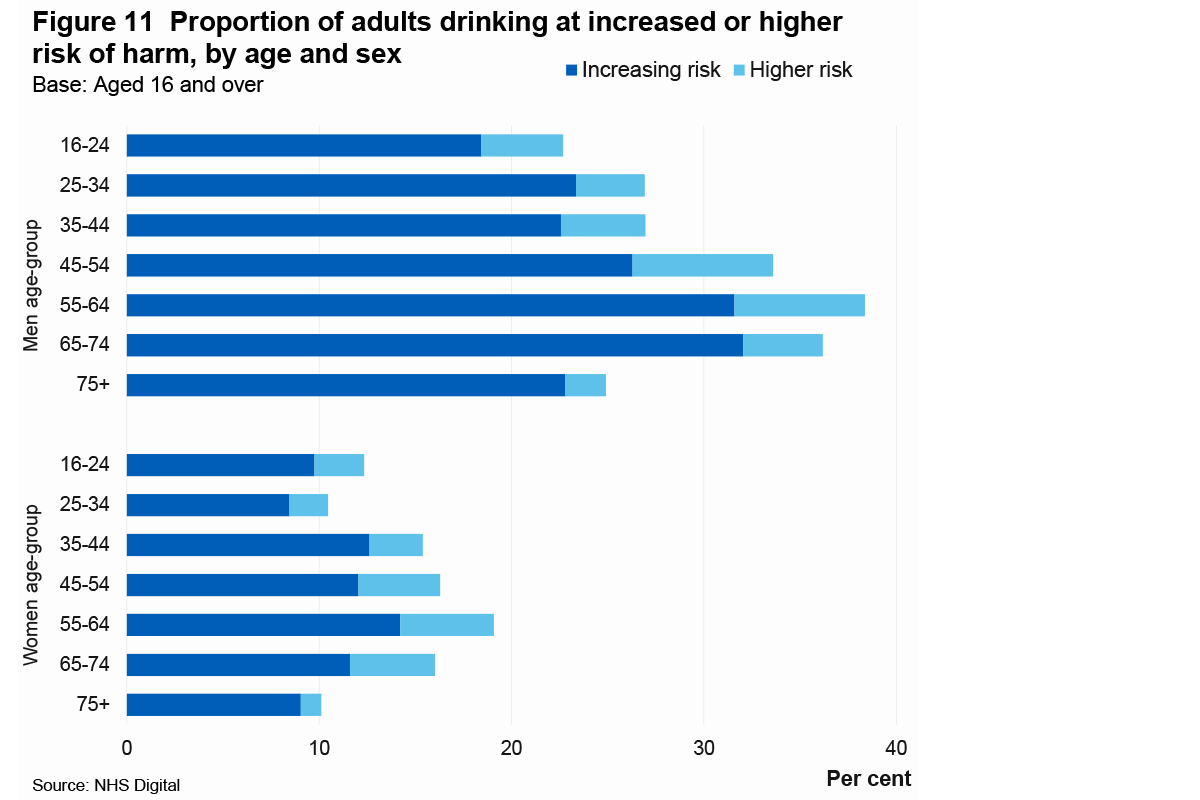Although rarely at the forefront of discussions about healthy ageing, alcohol is a key risk factor for many conditions responsible for poor health and disability as we age. Harmful drinking levels increase our risk of developing a number of different cancers, stroke, heart disease, liver disease and damage to the brain and nervous system as well as serious harm and injury due to alcohol-related accidents.
The burden of alcohol harm among people in mid to later life is borne out in Public Health England’s alcohol treatment statistics. In the ten years from 2008/2009 to 2018/2019, alcohol treatment services saw an overall 3% drop in adults being newly treated for alcohol misuse. However, among adults age 50-64, there was actually a 45% increase in people newly receiving alcohol treatment. For people aged 65 and over, the increase was even more dramatic – numbers nearly doubled for this age group.
The harmful impact of alcohol has been laid bare in a new report published this week by the Commission on Alcohol Harm. It highlights the burden alcohol places on public services and the economy and the damage alcohol can cause individuals, families and communities.
It also shows how, paradoxically, even though affluent people tend to drink the same amounts or even higher levels of alcohol compared to people from poorer backgrounds, the burden of alcohol harm disproportionately falls on those from more disadvantaged areas – thereby worsening existing inequalities. There are a few different theories as to why this might be – including different drinking patterns and the way alcohol consumption interacts with other risk factors for poor health. In addition, the report has found that older people from Black and minority ethnic backgrounds are more likely to face challenges in accessing treatment.
Other findings from the report show that people in mid to later life are:
- More vulnerable to alcohol harm from to higher levels of drinking because as we age it becomes more difficult for the body to break down alcohol.
- More likely to drink heavily as a result of a change in life circumstances, such as retiring, reduced opportunities to socialise, bereavement, or a change in financial circumstances.
- More likely to go undetected because they are ‘generally not known to treatment services and are reluctant to engage following hospital discharge’.
The report calls for a new government strategy to tackle the rising alcohol harm. This includes implementing evidence-based interventions recommended by the World Health Organisation, including minimum unit pricing, excise taxes, availability and promotion of alcohol, clear alcohol product labelling, advice and treatment for people drinking at harmful levels, and action to reduce drink driving.
Given the important role alcohol plays in healthy ageing, we fully support the commissioners' call for an alcohol strategy to tackle the hidden harms of alcohol on our society.


